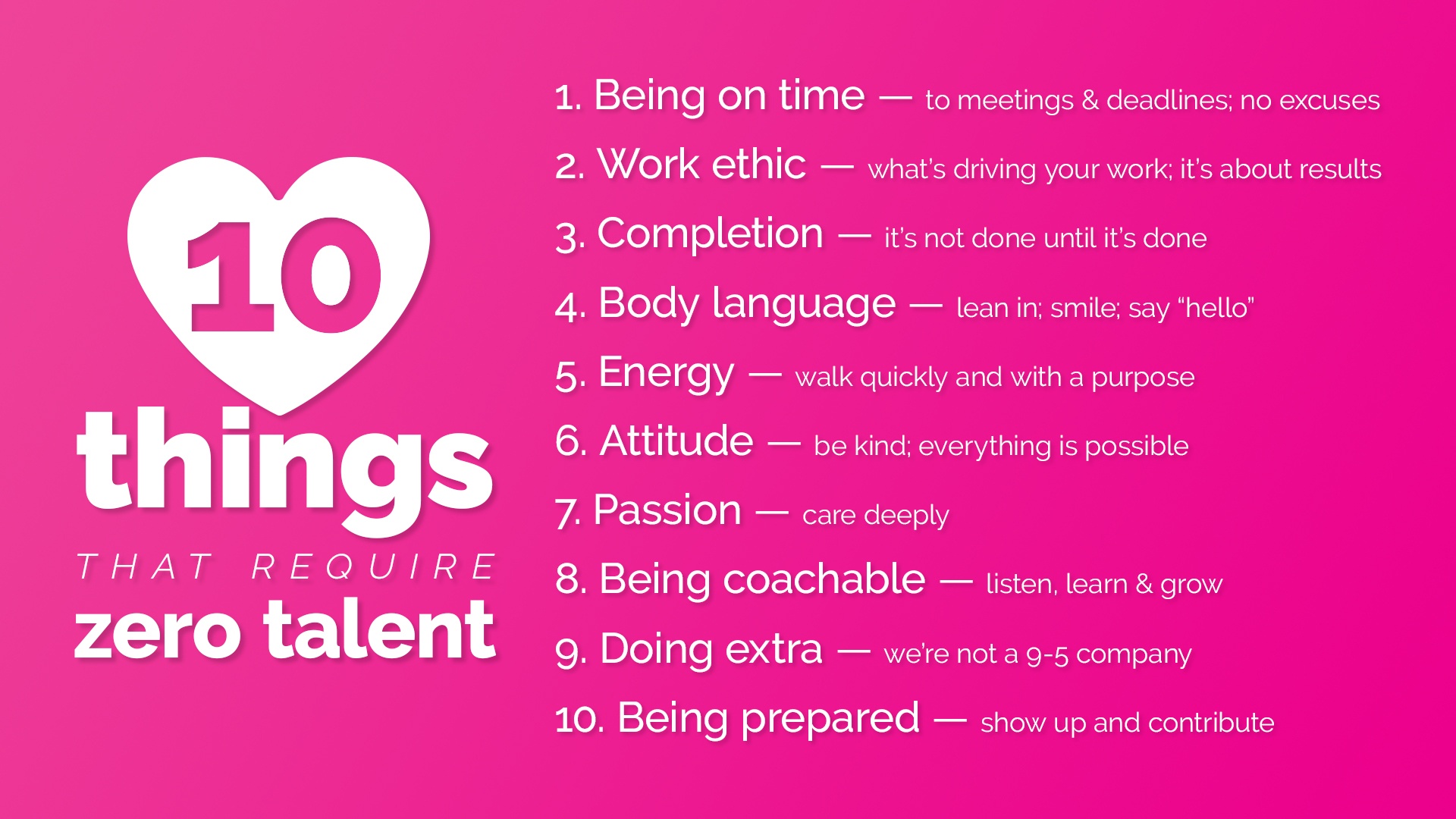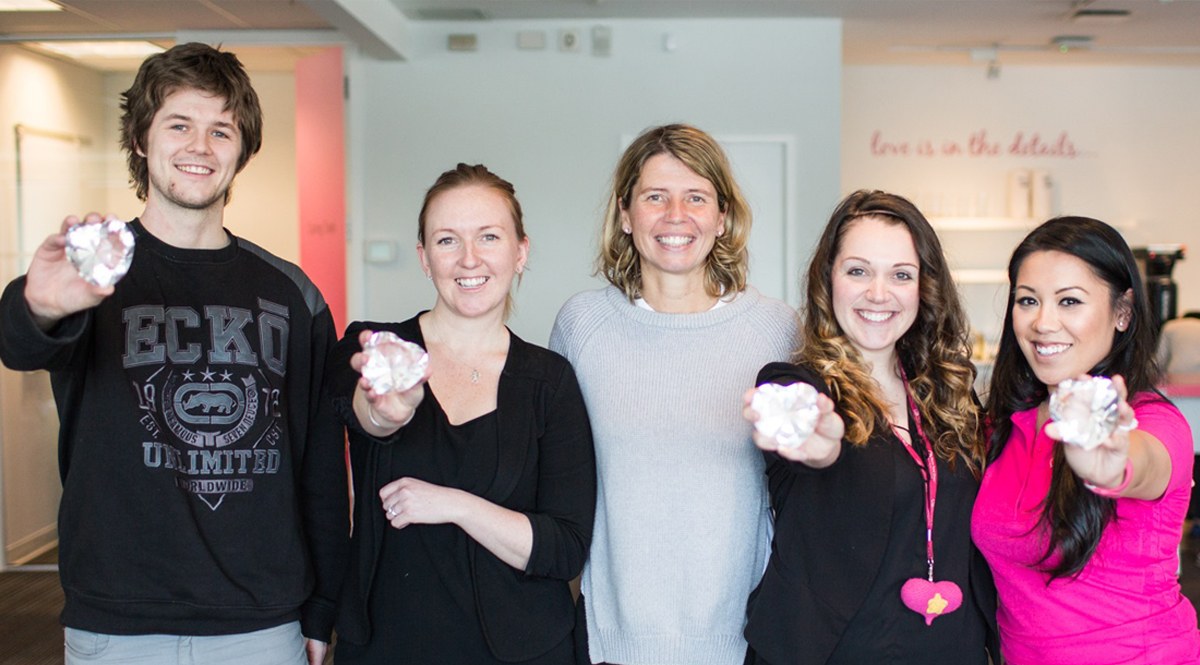One of the greatest challenges for rapidly growing organizations is how to remain nimble in the midst of growth.
As companies scale, more processes are required to coordinate the growing workforce. And the additional management layers that come with them can slow an organization down.
It’s often the reason why large organizations become weighed down with bureaucracy while small companies remain quick and agile.
Consider this recent story from Hootsuite CEO Ryan Holmes:
“Earlier this year, an employee wanted to send a customer a T-shirt with our logo as a gift. There was nothing special about this particular shirt. It was an ordinary, 100% cotton crew neck. But by the time this employee got approval—factoring in his own time and everyone else’s up the org chart who had to weigh in before signing off on the request—the cost of this t-shirt had ballooned to at least $200.”
Many organizations today are trying to hedge against inflated processes like these by changing their organizational structures. Hootsuite, for example, appointed a “Czar of Bad Systems” to help improve internal processes.
In today’s rapidly-evolving business environment, growing organizations need to remain fast and efficient. And some large, geographically dispersed and complex organizations seem to be able to maintain a level of agility despite their size.
How do they do it?
Nurse Next Door is one organization taking a radically different approach to solving this challenge by embracing a culture of self-leadership. They are one of North America’s fastest growing home care providers, with 150 franchise locations delivering high-quality home care services to seniors.
I recently spoke with Nurse Next Door’s President and CEO, Cathy Thorpe, to learn more about what they’re doing, and why.
Rethinking the Value of Middle Management
Cathy took over operations for Nurse Next Door in 2014 and by the beginning of 2016, she was already questioning the efficiency of their organizational structure.
“I wasn’t seeing the results that justified a structure of middle management, and I started to question the role of management in general. For example, whenever there was an issue in our Care Services call center, such as a scheduling interruption between a Care Service Specialist and a caregiver, the specialist would have to email the management team. Then the management team would review, assess and investigate it, and hours later act on it after reviewing 50 -100 more of these requests. Management, to me, was proving ineffective.”
Thorpe’s epiphany came several months later. “I saw a post on LinkedIn titled, ‘10 Things That Require Zero Talent’ (source unknown). I read it and thought, these are basic adult skills people struggle with, and managers deal with on a daily basis. But these skills require personal accountability and professionalism; not management.”
Middle managers would often deal with people arriving late or unprepared to meetings, for example, and thinking it was ok. These behaviors added unnecessary delays. Key pieces of information were missing from these meetings, thus requiring another meeting.
“Our leadership team also realized we were too involved in operational things,” Cathy shared. “We had our hands too deep in the water when it wasn’t necessary. It was starting to affect our team’s performance because they were complacent with waiting for direction from us instead of being proactive.”
Cathy and her team quickly realized that management can’t teach people work ethic or motivation. “We don’t need middle managers to manage people. We need everyone in our organization to hone these skills and take personal and professional accountability. We need people who show up with these skills every day, without excuses.”
Part of this thought was driven by the fact that Nurse Next Door is rapidly growing, and they didn’t want to lose momentum or slow down. “We need to make the best decisions for the company and at a timely pace. To do so, people need to be 100 percent present, accountable, and results driven. It’s hard to support and drive a culture of hypergrowth when your team can’t manage themselves.”
So, over the next few months, Cathy’s team took the “10 Things That Require Zero Talent,” and started distributing it around the office as a cultural artifact. Thus, the journey to self-leadership began.

Shaping A Culture of Self-Leadership
Thorpe and her team eliminated most middle manager roles across the company to create a mostly flat organizational structure. The Team Lead role was eliminated in the call center, for example, and they transitioned Care Specialists to specialized Account Manager roles, giving them more direct control and empowerment over customer-facing decisions.
They also began figuring out how to attract, recruit, and retain self-motivated team members, and find ways to best support them to be successful in this new, autonomous work environment.
By adopting Daniel Pink’s concept of Mastery, Autonomy, and Purpose, team members are encouraged to develop and explore their personal and professional goals and take initiative to proactively identify and improve inefficient processes in their daily work lives.
Nurse Next Door also eliminated annual performance reviews in favor of guidance and feedback in the moment. “We embraced and integrated Kim Scott’s concept of Radical Candor with both our HeartQuarters (headquarters) team and with our Franchise Partners,” Cathy shared. “It takes time to figure out your style of giving feedback. People are conditioned to take feedback as criticism, rather than a gift. It takes time to shift this mindset, but we are getting to a point where giving feedback is taking less energy and becoming more natural.”
The Benefits Of Self-Leadership
Thorpe’s efforts to embrace a culture of self-leadership has shown some significant performance gains in a rather short timeframe:
Increased productivity: Employees are more productive as they manage themselves and their results. They proactively solve problems and develop new ideas to find a better way, rather than wait for direction.
Increased satisfaction: People take ownership of their role, and are engaged and connected to the brand. They are brand ambassadors who are committed to the organization and have a strong sense of purpose. Results from a Nurse Next Door engagement survey (Fall 2016) noted that 94 percent of employees agree that they are inspired to do their best work with the company.
Created a team of leaders: Thorpe believes everyone on the team can be a leader regardless of their title. People report to their peers and hold each other accountable. They are decision makers, and in turn, are advancing their skills at a much faster pace.
Improved business performance: Nurse Next Door has experienced 20 percent growth year-over-year. By encouraging team members to be bold and disruptive, they drive innovation and create significant competitive advantages for the organization in the home care industry.
Given these accomplishments, how can you create a faster, leaner culture of accountability and encourage autonomy in your organization?
Five Things You Must Know About A Culture Of Self-Leadership
Cathy shared five tips to help your team embrace a culture of self-leadership.
- Self-leadership doesn’t mean your team makes decisions in a vacuum. Formalize how you want your team to give you updates and when they should seek your advice. Expect some collateral damage if you don’t, because people might make decisions and you have no idea what is going on. Perhaps they didn’t inform you of what they were doing, didn’t seek advice, or didn’t make the best decision. Clear up any communication gaps.
- Work together on the ‘what’ and let your team figure out the ‘how.’ But, don’t just jump ship immediately. You need to establish guidelines and create alignment in order for this to be successful. To implement a culture of self-leadership, your team needs to understand your strategy. If your team doesn’t know why they are doing something, regardless of their effort, the purpose is lost because they don’t have a clear picture of the goal.
- Create a culture of feedback. Have the necessary and hard conversations with your team. Establish your culture of care and trust. Whether you build trust through weekly updates, one-on-ones or a systemized process, it is important to develop an authentic relationship with your team. By establishing trust with your people, you are building the foundation for success.
- Have high expectations of your staff. If you don’t, they won’t. Expectations hold people accountable. Come up with your own customized “Ten Skills That Require Zero Talent List” to set the basic expectations of your self-led players. This will be incredibly helpful in creating stepping stones to a culture of self-leadership. If you expect mediocrity you will get mediocre results. Expect excellence.
- Allow the personal and professional to blend. Welcome authenticity and respect. You must establish respect and trust with your people and genuinely care about them, otherwise a culture of self-leadership will not thrive. “I believe one of the reasons that self-leadership works so well at Nurse Next Door is because people come to work with the same respect they carry in their personal life,” says Thorpe. Imagine how exhausting it is for people to show up to work every day having to be someone else. How can you expect them to give it their best and connect with your culture if they are constantly pretending?
“As a medium-sized organization, a culture of self-leadership works exceptionally well,” says Thorpe. “I believe a culture of self-leadership can be effective in any organization, but this model is not for everyone. Some people feel comfortable being told what to do and some leaders don’t feel comfortable leading less. From our experience, we find this model works best for self-led players who can accept feedback.”
This article originally appeared on Forbes.

